Service
Training and development
There is no better protection against the effects of prison and probation work than a sound knowledge base, a keen sense of professionalism and the confidence to accurately deal with the offenders, hence the importance of training and development activities.
“Neither is there a better guarantee against the treatment of a person deprived of his/her liberty than a properly trained prison officer“ (Council of Europe Recommendation 12/97).
Managing people in correctional contexts is a demanding and highly complex task, with the organization of the prison system depending on many actors that compel a continuous balance of apparently conflicting needs.
Offenders are often the most troubled, vulnerable and damaged members of society, and, as such, they present significant emotional, physical and psychological challenges to prison management and staff.
The job of a prison officer is therefore highly challenging and inherently stressful (Crawley, 2004), and those who do it need a range of skills and competencies if they are to carry out their role in an effective and professional manner.
There is no better protection against the negative effects of prison work than a sound knowledge base, a keen sense of professionalism and the confidence to accurately deal with the inmate population.
- Criminal justice innovation
- Leadership development
- Prison & probation
- Teachers and educators
- Police
- Community professionals
- Volunteers
Fostering optimal and innovative conditions to motivate people is a core factor in the development of prison and probation services
Innovation holds a primary role on human motivation at work. In an environment increasingly characterized by turbulence and constant change, organisations – namely those working in corrections – need to be constantly looking for new solutions to increase effectiveness.
Bringing innovation to traditional, hierarchical, and complex organisations is not an easy achievement. With different corporate cultures, complex organisations – that often desire to be managed as a systems – only accomplish to be run as articulated archipelagos of different organisational structures.
Innovation is induced by changes in society perceptions of the mission and role of correctional services; changes in the legal frameworks; the introduction of new technology and processes; or the integration of external services and the cooperation with civil society organizations.
It should involves technological transformation and management restructuring.
At IPS, we conceptualize and deploy criminal justice innovation initiatives, processes, procedures and tools aiming at exploiting new ideas leading to the creation of a new services and processes that add value and/or improve quality.
INNOPRIS: an example of innovation in corrections using new learning methods
INNOPRIS is a unique game storming tool that we have developed to help prison and probation services’ staff make accurate assessment and planning.
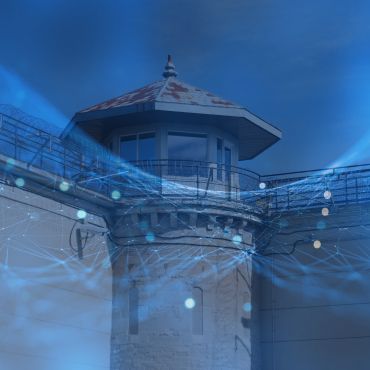
Fostering constructive prison and probation environments and operations
In corrections, this topic is crucial, as well-run organizations are brought into being by intelligent and competent leadership.
In the current context of correctional systems – just as it happens with other organizations – leadership plays a key role in their management and sustainability.
Many contemporary leadership theories seek to explain how leaders should proceed in order to achieve high levels of commitment and what roles they must play in order to achieve this.
Within this framework of thought, the development of key managerial skills-oriented for potential leaders in specific prison and probation management settings, along with other training scopes, can be very important.
Our leadership development training courses (using both traditional face-to-face methods and/or e-learning and gamification approaches) are developed with the broad aims of:
- Preparing leaders and work teams for dynamic leadership and for delivering high-performance operations;
- Stablishing a plan of action and learning at the level of leadership development and the preparation of high-performance teams;
- Taking on the roles that feature authentic leadership;
- Applying the mechanisms of the games in the performance of the leadership assignments;
- Enhancing the effectiveness of communication and the motivation of followers;
- Structuring and leading high performance teams.
Additionally, the following are an excerpt of training courses that we have developed from scratch and that we’re experienced providing:
- Leadership in prison management (top, middle and potential management);
- Business scorecard solution;
- Human resources management;
- Case management in the prison context;
- Educational counseling to inmates;
- Process Automation and Modulation
- Reinsertion: dealing with inmates return to family;
- Communication management skills;
- Systems Interoperability – Services Analysis;
- Process Automation and Modulation;
- e-Tutoring: promotion and creation of e-Learning contents.

The staff’s professional skills of any penal or probation service are key-elements of its quality and success
Education and continuous training are of utmost importance. Managing people in prison and probation settings is a demanding and highly complex task, as it depends on many individuals who compel a continuous balance of apparently conflicting needs.
In this respect, the Council of Europe has issued the following recommendation: “Neither is there a better guarantee against the treatment of a person deprived of his/her liberty than a properly trained prison officer“ (Council of Europe, Recommendation 12/97).
Offenders are often the most troubled and damaged members of society, and, as such, they present significant emotional, physical and psychological challenges to prison management and staff.
The jobs of prison and probation officers are, therefore, highly challenging and inherently stressful, and, in order to be carried out in an effective and professional way, those who do it need a range of differentiated skills.
We have extensive experience in the design and deployment of:
- Learning and knowledge management solutions;
- Secure e-Learning infrastructures for staff and prison/probation management training;
- Specific e-Learning content;
- Communities of practice implementation;
- Digital video-based learning programmes for internal closed TV circuits;
- Customized training courses.

Prison education programs need qualified educators who must be dedicated teachers
It takes a lot of resiliency on the part of teachers to overcome the obstacles presented by correctional environments, with these educators requiring special training and orientation to the peculiarities of teaching in scenarios where security tends to be the top priority.
Given the specific nature of teaching imprisoned individuals (youngsters or adults), teachers’ training is crucial for the success of learning initiatives within corrections.
An accurate and assertive training of teachers that work in prison settings surely increases the quality of prison teaching, the interest of teachers in prison education, and helps in the quality assurance of learning.
Our experience with the training and development of teachers has been attained through our participation in several transnational projects, namely EIGEP, EISALP and DIACEN.
At IPS, we’re highly qualified to develop prison education and education in juvenile justice contexts, by means of providing tailored resources through common initiatives and collaboration.
Thereby, in this area of expertise we develop:
- Innovative induction tools for the initial and further training of adult educators teaching in prison;
- Grundtvig training courses to improve the availability and quality of training courses available to adult education teachers interested in prison education;
- Modular training for preparing adult learning professionals in tackling the challenges of having inmates as students;
- Key competency profiles for the adult learning professionals working in the correctional system;
- Adjustments on the modular training so it can be used by the educational departments of prisons as first day’s introductory training for new teachers;
- e-Learning courses on educational programs, CAF, teacher training and e-tutoring;
- Specific competencies profile for education professionals when working with children in juvenile justice contexts;
- A virtual environment for education professionals working in juvenile justice.

Developing a most trained, capable and modern police sector
Many law enforcement units are facing challenging settings when it comes to moving towards the achievement of a modern strategic vision. In order to achieve this, it is necessary to create an organizational development and change intervention that targets all levels (Strategic, Governance, Operational and Enablers) thoroughly with sufficient level of linkage and correlation. Plus, education and training activities are of utmost importance within this sector.
Our projects concerning the police sector are related to the provision of support for modernization requirements, whilst delivering additional capacity building:
- The development of a shared vision regarding the future of the organization among all the professionals;
- The development of leadership skills and abilities at different levels of the organization;
- The immersion in different learning experiences (visits, workshops, training, process improvement activities) that will support the adoption of international standards and proven innovative good practices;
- The operational improvement of existing processes transversal to different organizational units;
- The reinforcement of cooperation within the departments and with other organizations;
- The promotion of a corporate culture that fosters and translates future values.

We provide consultation and integrated training solutions to communities by leveraging their professionals’ skills and their intervention power
In this scope, we aim to strengthen the capacity of individuals and organisations to understand, identify and respond to the needs of the community members and their targeted vulnerable audiences.
We work collaboratively with individuals and organisations in order to identify gaps in the community and provide proper responses to these needs, such as: training, specialist consultation, access to resources, identifying referral pathways, and to support, develop and implement strategies that will improve community safety and the psychosocial reintegration of offenders and audiences at risk.
It’s important to foster stability in the communities by upgrading and developing the competences of their practioners in several fields.
An example of an ongoing transnational project in which we take part is Frame Gang. This project is addressing the leveraging of community professionals’ skills, and puts forward a work plan to develop pilot tools, materials and a training methodology that identify competences needed for engaging within local communities affected by gang activity, to harness their local knowledge and meaningfully increase their understanding and capacity to act in gang environments.

The role and value of volunteers working with offenders (or former ones), their families and victims of crime is undisputed
And that’s why their collaboration highly depends on their training.
We’ve developed and we supply a best practice guide on volunteer recruitment, training and support, and volunteer training programme.
This toolkit outlines the step-by-step to deliver tailor-made training for volunteers in the criminal justice system, aiming at assisting organisations in identifying training needs and arranging the most suitable training, focusing on specific themes to address those needs.
Regarding volunteer training and development activities, we can work with volunteering promoting organisations, with volunteering beneficiary organisations or with volunteers themselves (or volunteer associations).
Each module of the training, which is run in a b-learning method (blended learning) has a presentation and activities to be performed by volunteers in order to achieve the learning outcomes.
These activities can be written
assignments, group assignments, debates, quizzes or role-plays.
The contents of this training programme are as follow:
- Introduction to the criminal justice system;
- The volunteer profile;
- Roles and responsibilities;
- Communication;
- Motivational interviewing;
- Risks, boundaries and self-regulation;
- Handling crisis;
- Client needs’ analysis;
- Evaluation.

Specialised Training Platform
Build up your correctional skills anytime, anywhere, at your own pace
We develop tailor-made, face-to-face and online training programs using new methodologies, and we’ve already trained more than 1500 prison staff members in different countries over the last years, designing courses to meet the specific needs of each jurisdiction and function.
These courses can be found at the Corrections Learning Academy — an online educational platform for Correctional professionals, created by IPS, with a growing course library, from flexible self-paced programmes to instructor-led training courses.
Projects
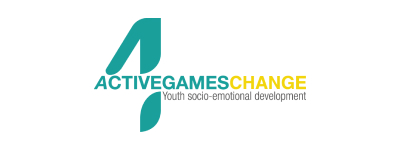
Active Games 4Change
Sport and physical activity learning environment for citizenship, emotional, social and e-competences training

AWARE
Cross-sectoral awareness building on mental health needs in the criminal justice system and on release

AWARE EAW
European Arrest Warrant

BLEEP
Blended Learning Environment for European Prisoners

BRISAR
Bringing Safety on the Roads

CCJ4C
European Career Counselling Guidelines for Staff Working in Criminal Correctional Justice System
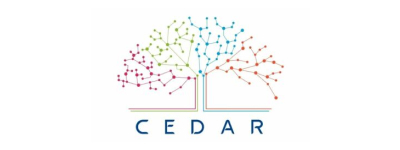
CEDAR
Continuing Education Against Radicalisation

Coding-OUT
Coding in prison as a valuable OUTside tool for employment

CREDEM IN SCHIMBARE
Cultural change in prisons

DIACEN
Taking Further Prisoners’ Education Projects in Using Dialogue as Preparing for Release

DIGITWG
DIGICOR Digital Transition Working Group

ECOPRIS
Ecological Economics in Prison Work Administration

EIGEP
European Interaction Guidelines for Education Professionals when working with Children in Juvenile Justice Contexts

EISALP
European Induction Support for Adult Learning Professionals to the Correctional Criminal Justice System

EPHESUS
Promoting fundamental rights in (post) pandemic times in cross-border proceedings

EUTEx
Developing a European framework for disengagement and reintegration of extremist offenders and radicalised individuals in prison
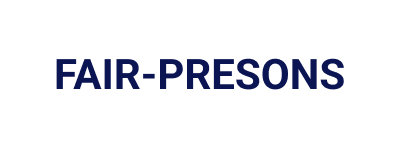
FAIR PRESONS
Fair predictions of gender-sensitive recidivism

FRAME GANG
European Framework of Competences for Community Professionals in Gang Environments
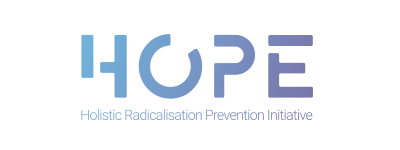
HOPE
Holistic Radicalisation Prevention Initiative (Balkan countries)
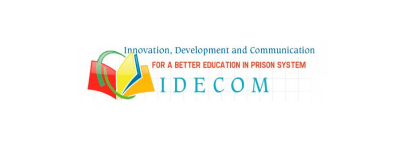
IDECOM
Innovation, Development and Communication for a better Education in Prison Systems
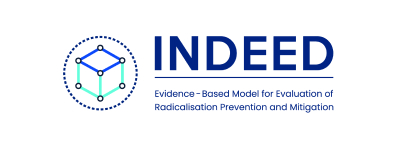
INDEED
Strengthening a comprehensive approach to preventing and counteracting radicalisation based on a universal evidence-based model for evaluation of radicalisation prevention and mitigation

INTEGRA
Integrated Community, Probation and Prison Services Radicalisation Prevention Approach

Itinerariul Dialog
Social dialogue for better prisons
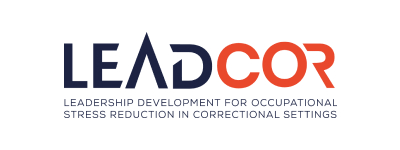
LEADCOR
Leadership development for occupational stress reduction in correctional settings

MENACE
Mental health, ageing and palliative care in European prisons

MyComPass
Key Competencies for Minor Offender Reintegration

NEXT STEPS
Development and testing of a process chain for the placement of former detainees as specialists in the labour market

NO-OBLIVION
Promoting Universal Jurisdiction while Evoking the Crimes Committed within the Former Yugoslavia

PARTES
Participatory Approaches to Protecting Places of Worship

PGISP
Managing for innovation

PO21
European Prison Officers for the 21st Century

PPROMPT
Peer Pro-Social Modeling in Probation

PRE-RIGHTS
Assessing the impact and performance of preventive measures on EU Directives and Framework Decisions

PRE-TRIAD
Alternative pre-trial detention measures: Judicial awareness and cooperation towards the realisation of common standards

PREVEX
Preventing Emotional and Sexual Abuse Among Young People

Probationet
A flexible, multidisciplinary and transnational VET model for the PROBATION services and practitioners

PROMOTE
Promoting Integrated Professional Development for Prison Practitioners in Vocational Excellence for Offender Reintegration

R2COM
Radicalisation and violent extremism prevention in the community
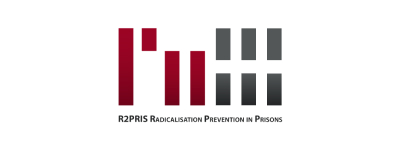
R2PRIS
Radicalisation Prevention in Prisons

R4JUST
Radicalisation Prevention Competences’ Development Programme for Justice Professionals

RE[ENTER]
Strengthening the capacity of criminal justice professionals and volunteers

SISWEC
Strengthening the skills of social workers in a Europe in crisis

STEP2LAB
Systematic Transition from Prison into the Labour Market

TRAIVR
Training of Refugee Offenders by Virtual Reality

TRIANGLE
Secured digital education system for vocational skills for youngsters in closed institutions

Turning Blue
Integrating Young Offenders Through the Blue Economy

ViRTI
Virtual reality for training inmates
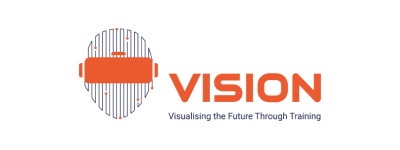
VISION
Visualising the Future Through Training

VR4React
Reducing Reactive Aggression through Virtual Reality

WAYOUT
Integrated Exit Programme for Prisons and Probation
Stories on training and development

Workshops enhance the skills of correctional officers and volunteers to support post-prison employment
Read More »
Revolutionising Probation: A new cutting-edge training model emphasises rehabilitation and Restorative Justice principles
Read More »







